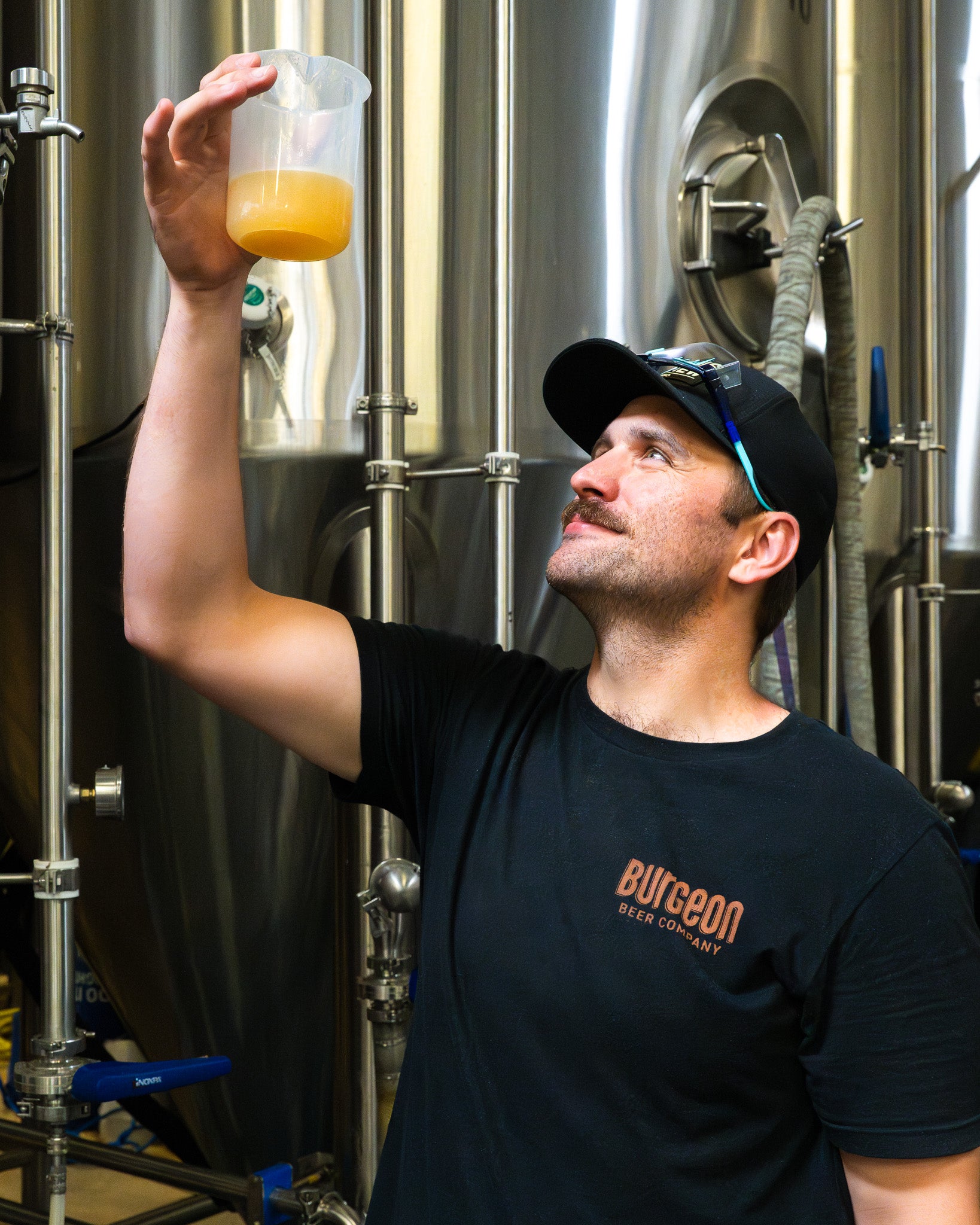

· By Mackenzie Kline
What are Thiol Amped Hops?
First up: shout out to Burgeon's newly-promoted Brewery Production Manager Daniel Vernon! Your operational skills are second to none and we’re stoked you’ve accepted the role to fine tune our production process.
Now to the hoppy stuff: if you like to nerd out on beer science like we do, here is Daniel's run-down of an exploratory new hop product called "Thiol Amped Hops" used for the first time by Burgeon in It’s a Vibe IPA.
What’s special about It’s a Vibe IPA?
- Outside of our beertenders at the Oasis each selecting a hop to include in the beer, one of those varietals is a special trial hop from Freestyle Hops - Thiol Amped Nelson Sauvin.
Thiol? What is that?
- Thiols are a family of sulfur-containing aroma compounds naturally found in hops, either as free aroma-active (free thiols) volatiles or as non-aroma-active (bound thiols) precursors. They represent only 1% of the total hop oil composition and are categorized as the sulfur fraction. Despite their low concentrations, thiols have very low sensory detection thresholds, meaning they are perceived at exceptionally low concentrations. These compounds can give a very intense fruity flavor to predominantly dry-hopped beers.
What does that mean for consumers?
- Part of what makes Burgeon beer so special is our ability to derive the max potential from our hop expression throughout our brewing process. Free thiols do not require extra assistance to express themselves as they are already aroma-active. Bound thiols, however, require a chemical reaction through beta-lyase activity to express their aroma. Through a process known as biotransformation, we introduce hops (dry hopping) during active fermentation to utilize the beta-lyase enzyme found in yeast to “unlock” or “free” those compounds. Certain hop varieties have higher free thiols, and vice versa, and there are even thiol precursors found in malt. Certain yeasts also contain higher beta-lyase concentrations than others, so our selection of strains used is also important. We as brewers are looking to maximize that expression whenever possible. Through this, we can create a much more complex, enjoyable beer to give our consumers the most bang for their buck.
So, back to Thiol Amped Nelson Sauvin, what does that mean and why should you care?
- Like us, plants release different compounds as responses to their environment (think adrenaline or cortisol). The primary pathway that creates 3S4MP in Nelson Sauvin has been shown in other species to be activated by physical damage to foliage from pests (like caterpillars, white flies, aphids, etc.). Harvesting does significant mechanical damage to the plant and most likely activates this pathway, but only for a very brief period of time before the hops are in the kiln and these pathways are deactivated by heat and moisture loss. Freestyle Hops wanted to try applying fairly extreme mechanical damage to the plants in the field at a point a bit earlier than a few hours before kilning. The two trials are the result of essentially beating the crap out of the plants in the field one day and three days before harvest. The X906 trial had a bit over 24 hours in the field from applying mechanical damage to harvesting. The hops looked fairly normal but slightly "wilted" when harvested and smelled weirdly passion fruity. It is hard to describe, but it was a moderately different character to the tropical notes from the rest of the block. I'd call it a "sweeter" passion fruit character with more stone fruit notes. In lab testing this lot has the highest level of free 3S4MP they've ever seen (206.4 ng/g), a 15% higher concentration than normally harvested Nelson Sauvin. In short, we are incorporating the most flavorful and complex Nelson Sauvin hops available into this powerhouse hop lineup to maximize the tasting experience for our consumers!

